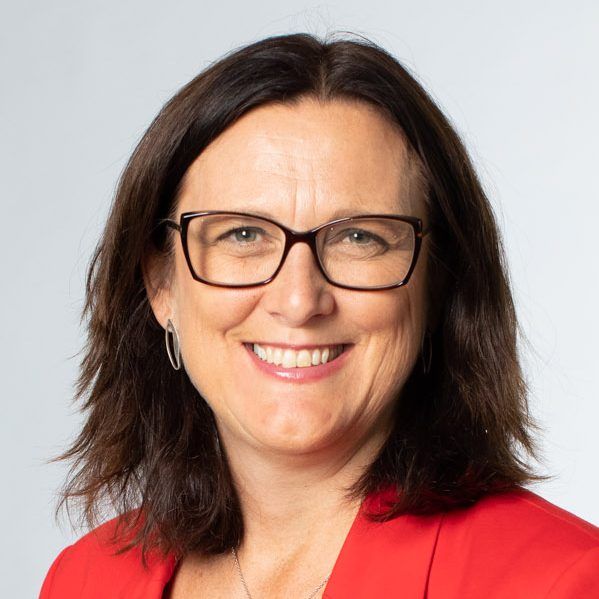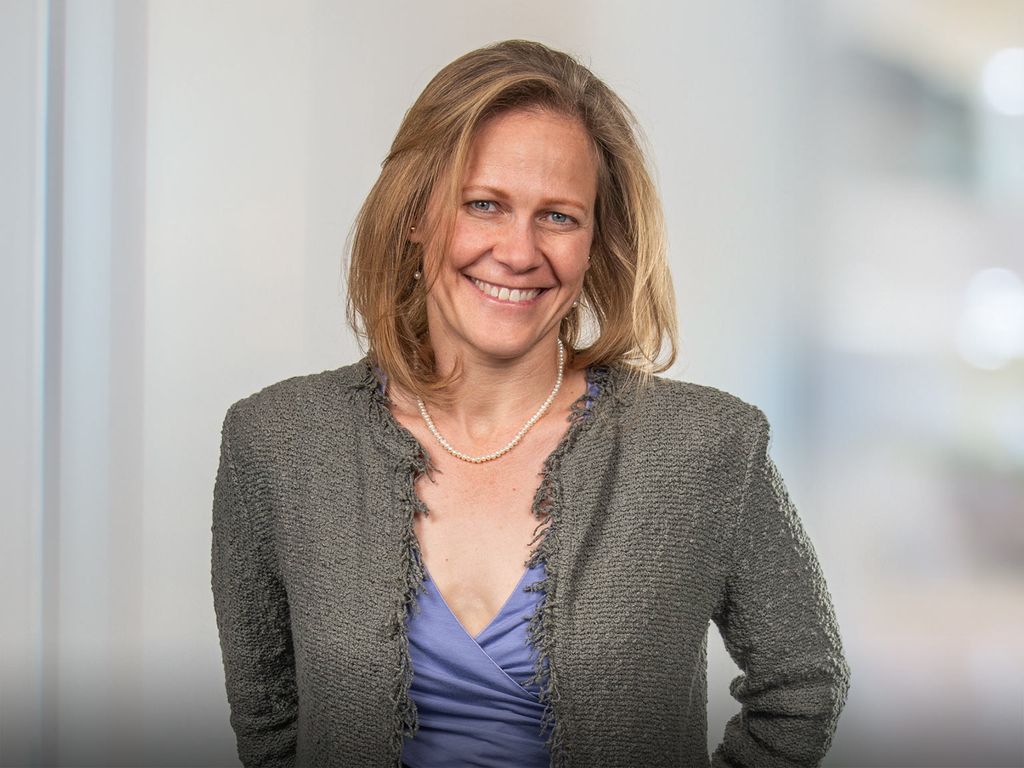
What happened?
The future of global trade is increasingly shaped by geopolitical dynamics, with growing global tensions raising questions about the resilience of the international trading system. As trade becomes more politicised, concerns over economic security, supply chain dependencies and shifting alliances are reshaping global markets. This evolving landscape prompts a critical debate on whether we are moving towards a deglobalised world and what this would mean for European economic growth and stability.
This conversation with former European commissioner for Trade, Cecilia Malmström, and Olivia White, Director at the McKinsey Global Institute and Senior Partner of McKinsey & Company, examined the increasingly relevant role of the geopolitics of trade, the impact of EU-US-China tensions on trust in global markets and the long-term implications for international economic cooperation. This discussion took place as part of a two-part series on the future of EU trade and security.
‘What the Chief Says’ events are informal and off-the-record roundtable debates that offer our members the exclusive opportunity to engage directly with a senior decision-maker from a European institution or government and get to the heart of a specific policy issue. These events are geared to be in tune with the interests of our members and are strategically linked to emerging trends within the EU sphere. Allowing us to identify opportunities and challenges in the European Commission’s agenda, these events discuss the ‘nitty gritty’ of policies affecting Europe in the next years and beyond.
Follow us on Twitter, LinkedIn, Instagram or Facebook, and join the #WhatTheChiefSays discussion!
Schedule
Speakers

Senior Fellow at the Peterson Institute for International Economics, former European commissioner for trade and home affairs, former Swedish minister for European Union affairs, and Trustee of Friends of Europe
Cecilia Malmström is a renowned Swedish politician, who has held various positions at the national and European levels. As the European commissioner for trade, she was responsible for pursuing an ambitious trade agenda to the benefit of European citizens, SMEs and the broader economy, as well as negotiating key bilateral trade agreements, including a comprehensive EU-China investment agreement. Prior to her role at the Commission, Malmström was also the Swedish minister for EU affairs and served as a member of the European Parliament Committee on Foreign Affairs and Committee on Constitutional Affairs, among others.

Director at the McKinsey Global Institute and Senior Partner of McKinsey & Company
Olivia is a senior partner at McKinsey & Company and a director of the McKinsey Global Institute (MGI), the firm’s business and economics research arm. Olivia advises leading financial institutions and other global firms on a wide range of issues across strategy, growth, risk and resilience. She draws on expertise across scenario analysis, advanced analytics and model risk, effectiveness and efficiency, organisation and talent, culture and other areas. Olivia’s research spans a range of global trends, including topics related to resilience, global flows and value chains, financial markets, technology and innovation, labour markets, and inclusive growth, most recently focused on Africa. She has led major efforts on open data for finance, digital financial infrastructure and digital ID. She has also worked extensively on financial and digital inclusion in both developed and emerging markets. Prior to joining McKinsey, Olivia was a Pappalardo fellow at the Massachusetts Institute of Technology, where she conducted research both in physics and in neuroscience.
Activities
Europe-China Forum 2025
Next event In person & livestreamed

- Area of Expertise
- Global Europe
Trading tariffs and trade as a geopolitical tool
Past event

- Area of Expertise
- Global Europe
From aid to investment: shaping Europe's global role in a changing world
Past event Online

- Area of Expertise
- Global Europe
Future Africa-Europe High-Level Forum
Past event IN PERSON & ONLINE

- Area of Expertise
- Global Europe
Trump's betrayal of the world's poor is Europe's opportunity
- Category
- Frankly Speaking
- Author
- By Giles Merritt
Policy Voices | #Throwback: UNRWA’s Jonathan Fowler on Gaza: “It is a…
- Category
- Podcast
- Area of Expertise
- Global Europe
DRIVE Impact Initiative final report
- Category
- Event Reports
- Area of Expertise
- Global Europe
Europe’s blackouts call for a NATO-level response
- Category
- #CriticalThinking
- Author
- By Maurizio Geri

- Area of Expertise
- Global Europe

- Area of Expertise
- Global Europe

- Area of Expertise
- Global Europe

- Area of Expertise
- Democracy
Continue
the debate on
- Debating Europe
